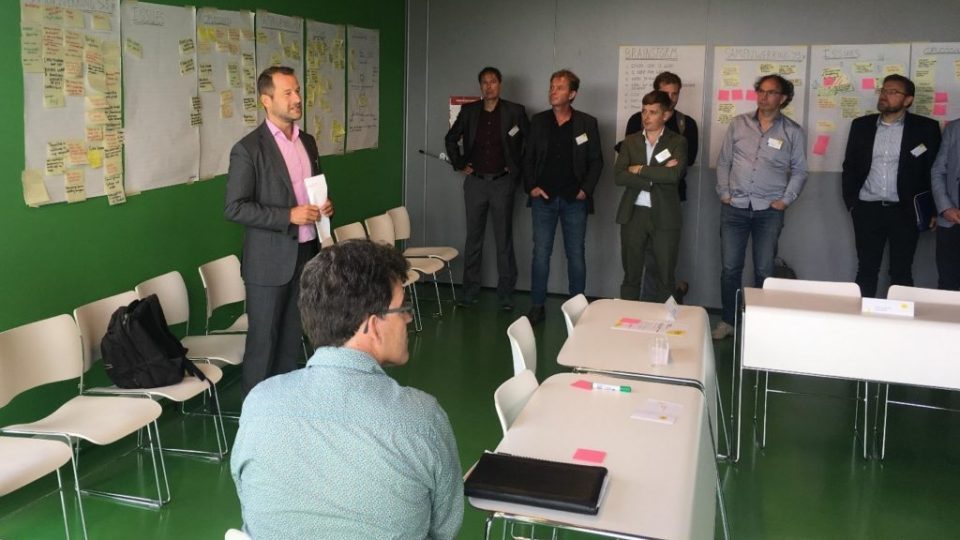New Energy Coalition focuses on energy transition and labour market

In a series of meetings Wednesday 27 June, New Energy Coalition paid specific attention to labour market issues in relation to the energy transition.
“The energy transition is one of the most significant societal developments today and it has been compared with the industrial revolution in the 19th Century”, says Gertjan Lankhorst, CEO of New Energy Coalition. “It will completely alter the way in which produce and consume energy and it will impact the entire energy supply chain, and, therefore, also the labour market. This is why we want to discuss this important topic with our partners and other sector stakeholders, so that we can jointly anticipate –and tackle- any challenges that may arise.”
On the occasion of the TransFuture Festival, New Energy Coalition therefore organised a series of meetings on this topic.
Round Table discussions
In the morning, a number of parallel round table sessions took place in the context of the ongoing project ‘Human Capital in the Energy Transition’. This project aims to improve collaboration between educational institutes and SME energy businesses, so that energy labour market issues can be better tackled, for example by better tailoring energy curricula to labour market needs and creating innovative work-and-learn environments.
Charles van Santvoord, Project Leader: “I am pleased with the large turnout from representatives from educational institutes and businesses at the round table meetings. I also sensed much interest and enthusiasm among the participants to see how the interaction can be improved in order to better educate and train future energy professionals. The meetings generated useful input that we can now use to develop concrete actions.”

Meeting of NEC Strategic Coalition Partners
In the afternoon, a meeting of New Energy Coalition’s Strategic Coalition Partners also focused on the energy labour market in relation to the energy transition. The topic was introduced in presentations by the Environmental Assessment Agency (Planbureau voor de Leefomgeving), which published a report entitled ‘Effects of the Energy Transition on the Regional Labour Market’ in March this year, and Energy College.
Frank van Hout, representative of Energy College, says: “Energy College is at the forefront of developments in this area and we have already developed a number of innovative energy tracks within our curricula to meet labour market needs for properly trained personnel at the vocational level. We will continue to collaborate with various parties and I appreciate that New Energy Coalition dedicated the meeting to this important topic.”
Gertjan Lankhorst: “New Energy Coalition brings together partners from businesses, knowledge institutes and governments and we therefore see it as our role to facilitate dialogue between these parties on energy labour market challenges that arise and what they mean for human capital development. New Energy Coalition is also well-placed to tackle those challenges by working with our partners on relevant education programmes, research and business development – and especially also the intersection between these areas.”
